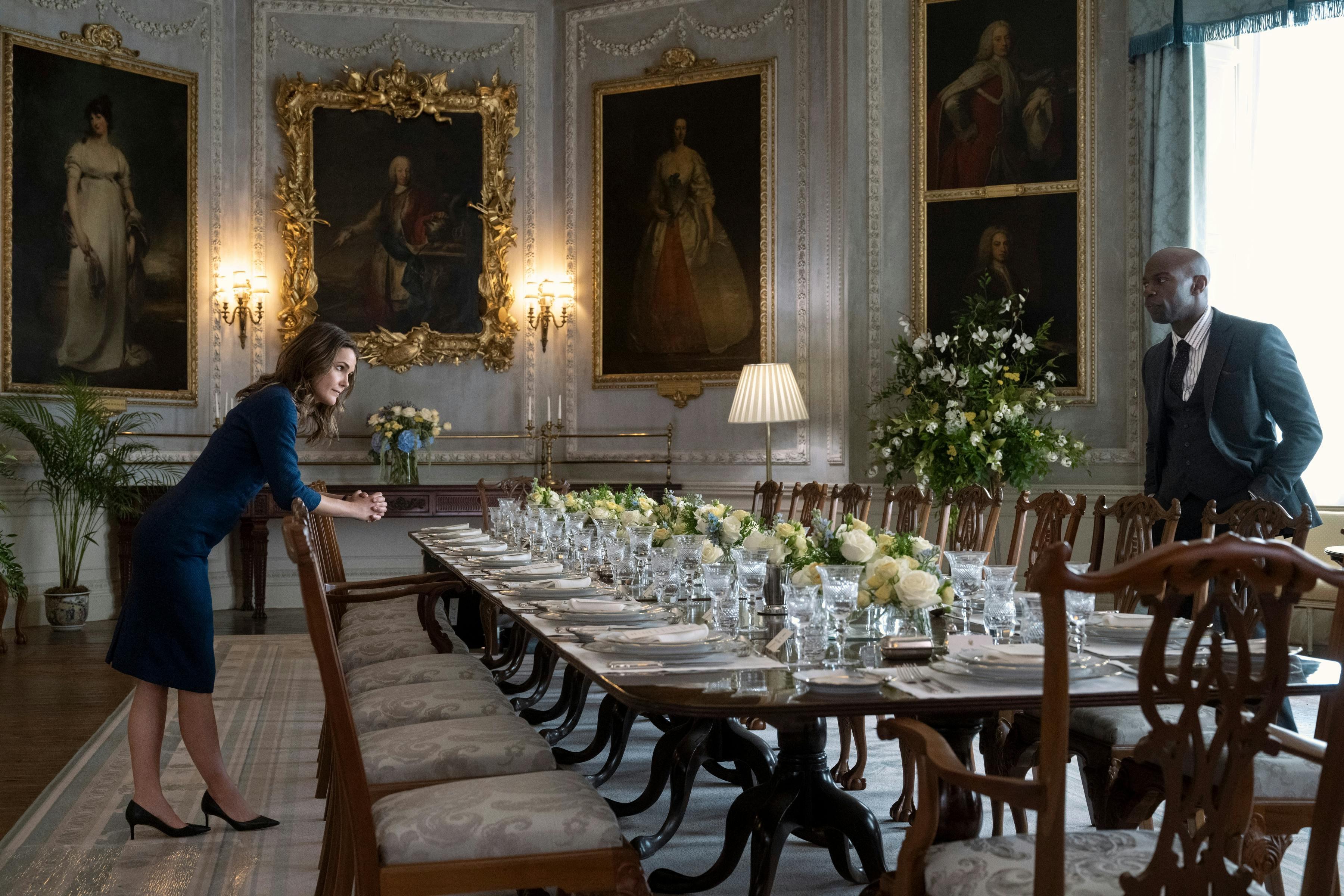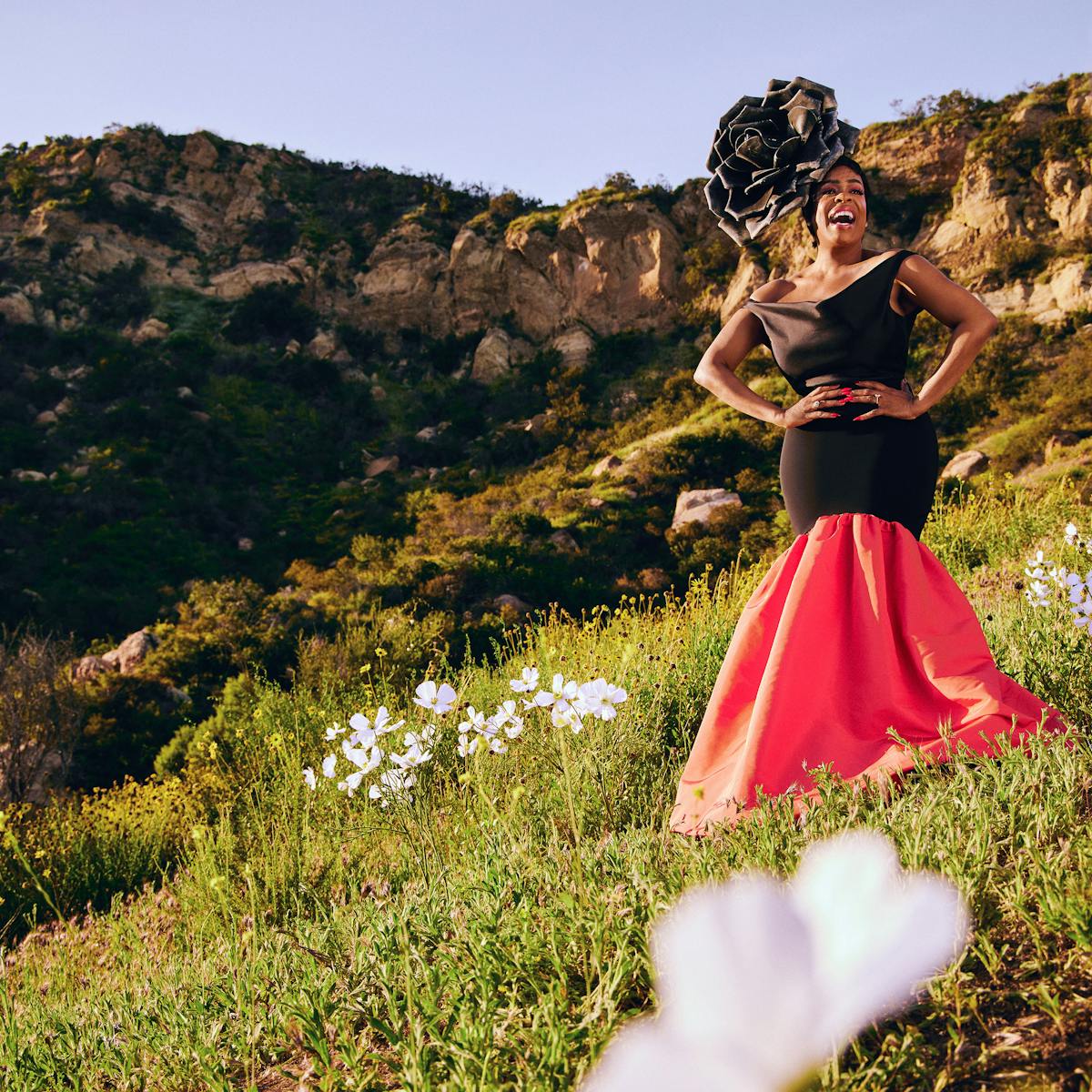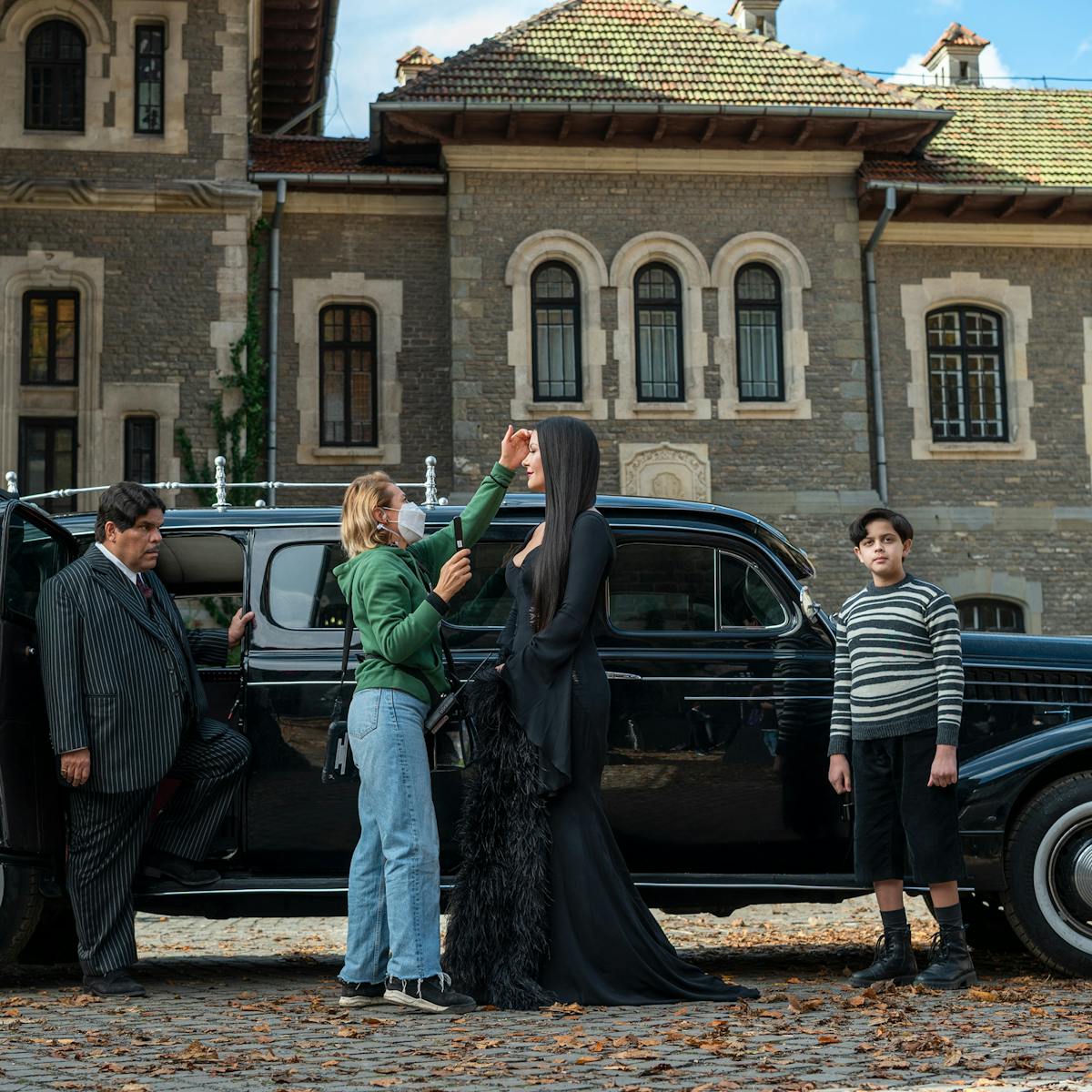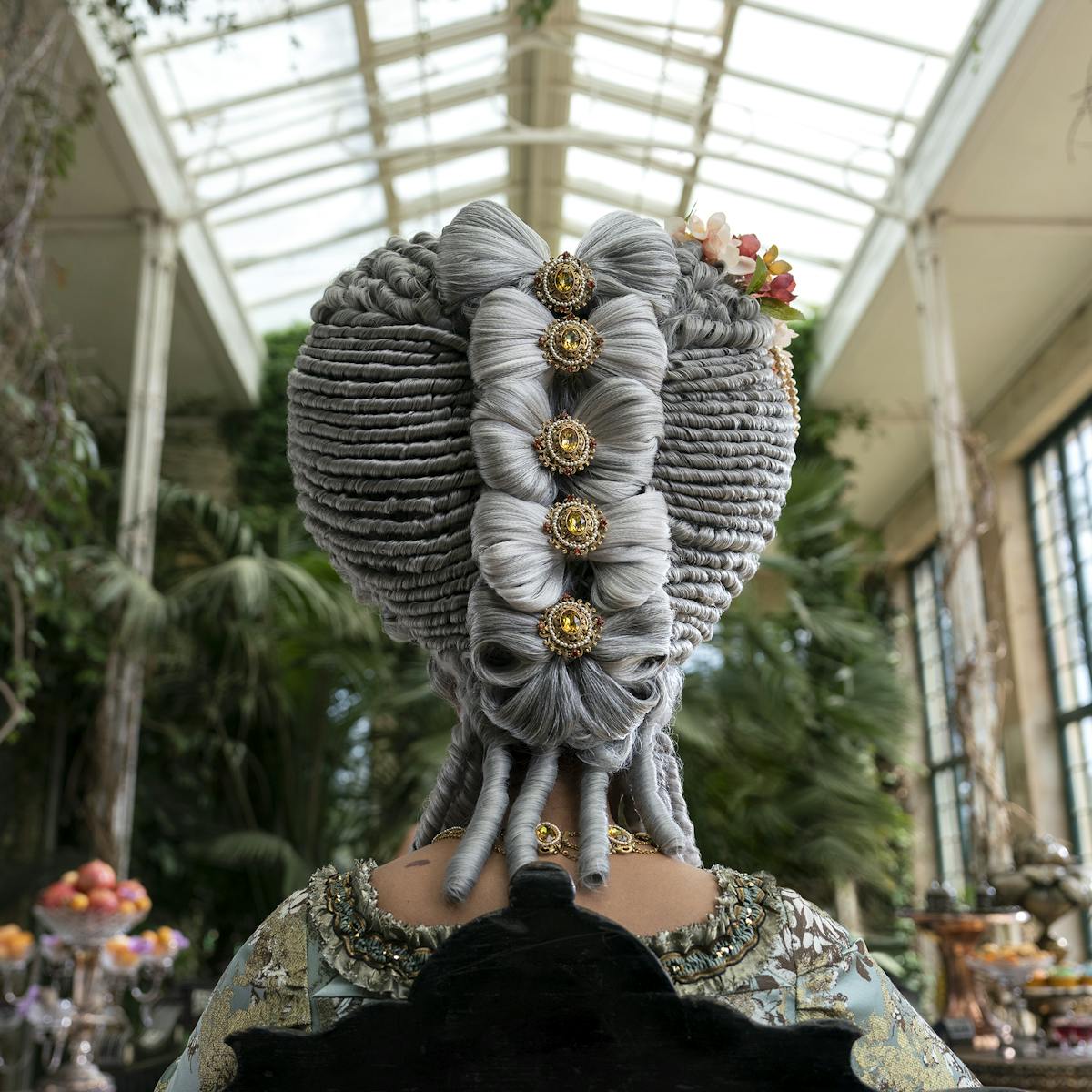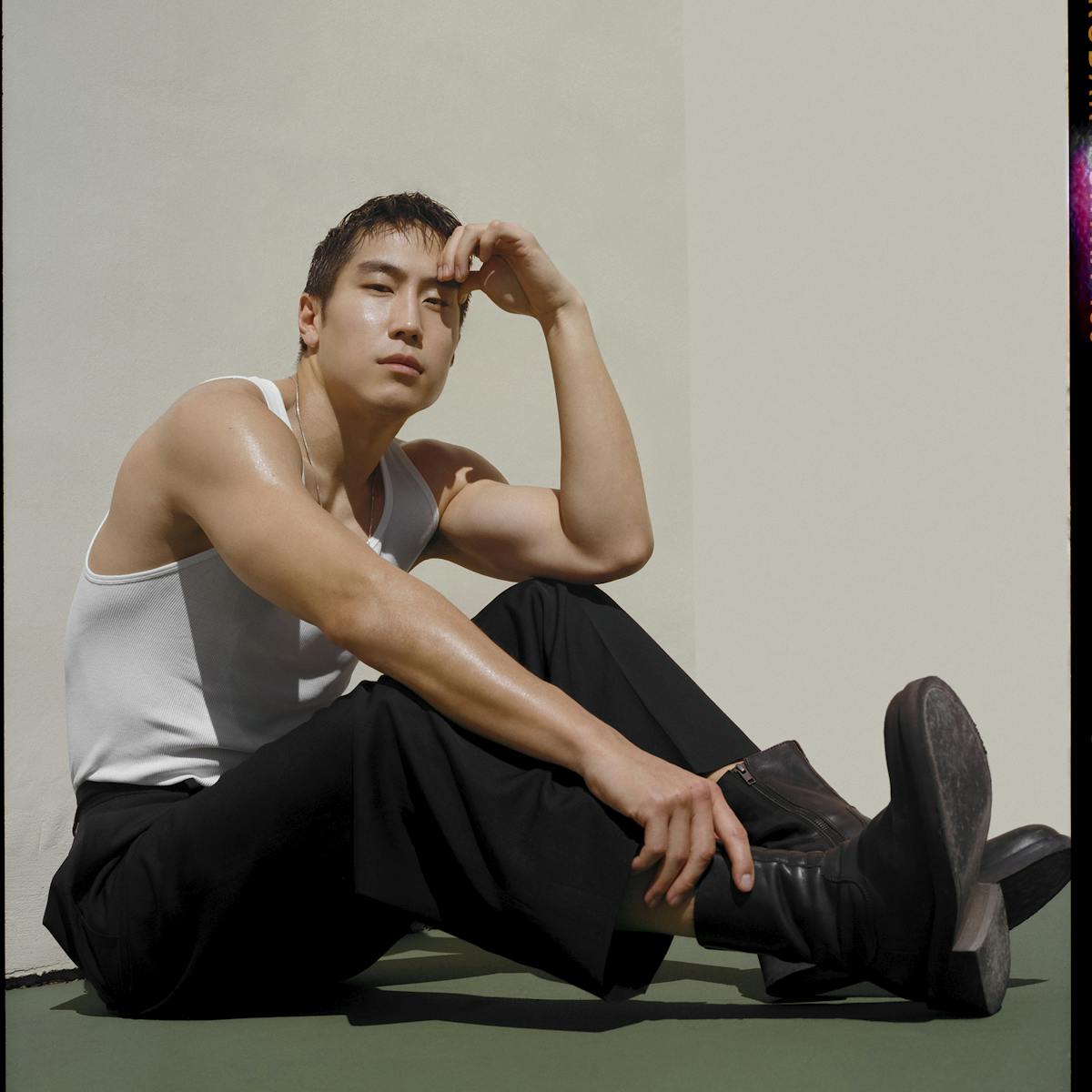Debora Cahn’s The Diplomat defies genre at breakneck speed.
High-stakes thrillers like to depict negotiations as clandestine meetings in spartan rooms with one flickering lightbulb and a folding table. But if you want to know just how harrowing a real-life negotiation can be, try convincing someone who’s in the middle of cooking Christmas lunch with her entire family — and who has no interest in leaving home — to move across the world for a job.
That, readers, is called diplomacy, and television writer and producer Debora Cahn employed it with aplomb when enlisting Keri Russell to star as newly-appointed U.S. ambassador to the United Kingdom, Kate Wyler, in The Diplomat. The genre-defying thriller-comedy-romance-drama is about alliances, dalliances, and one particularly incredible red dress. Or, as Cahn describes the eight-episode journey, “a show about the long-term relationships between people and between countries.”
“I hadn’t done a series in many, many years — and I didn’t think I’d ever do one again, but this was just too fun to pass up,” Russell says of moving to London for several months to film the first season. “I read Debora Cahn’s script, and I just thought it was so funny and sharp and messy and enjoyable, and I couldn’t say no.”
Funny? Kate pummels, with the assistance of some tree branches, her frustrating (if astute) liability of a husband, Hal (Rufus Sewell), in Episode 3. Sharp? Episode 8’s political bombshell is expertly and jaw-droppingly revealed. Messy? The explosive chemistry between Kate and British Foreign Secretary Austin Dennison (David Gyasi) begins with their very first hallway encounter in Episode 1. Enjoyable? The show was picked up for a second season less than two weeks after its premiere.
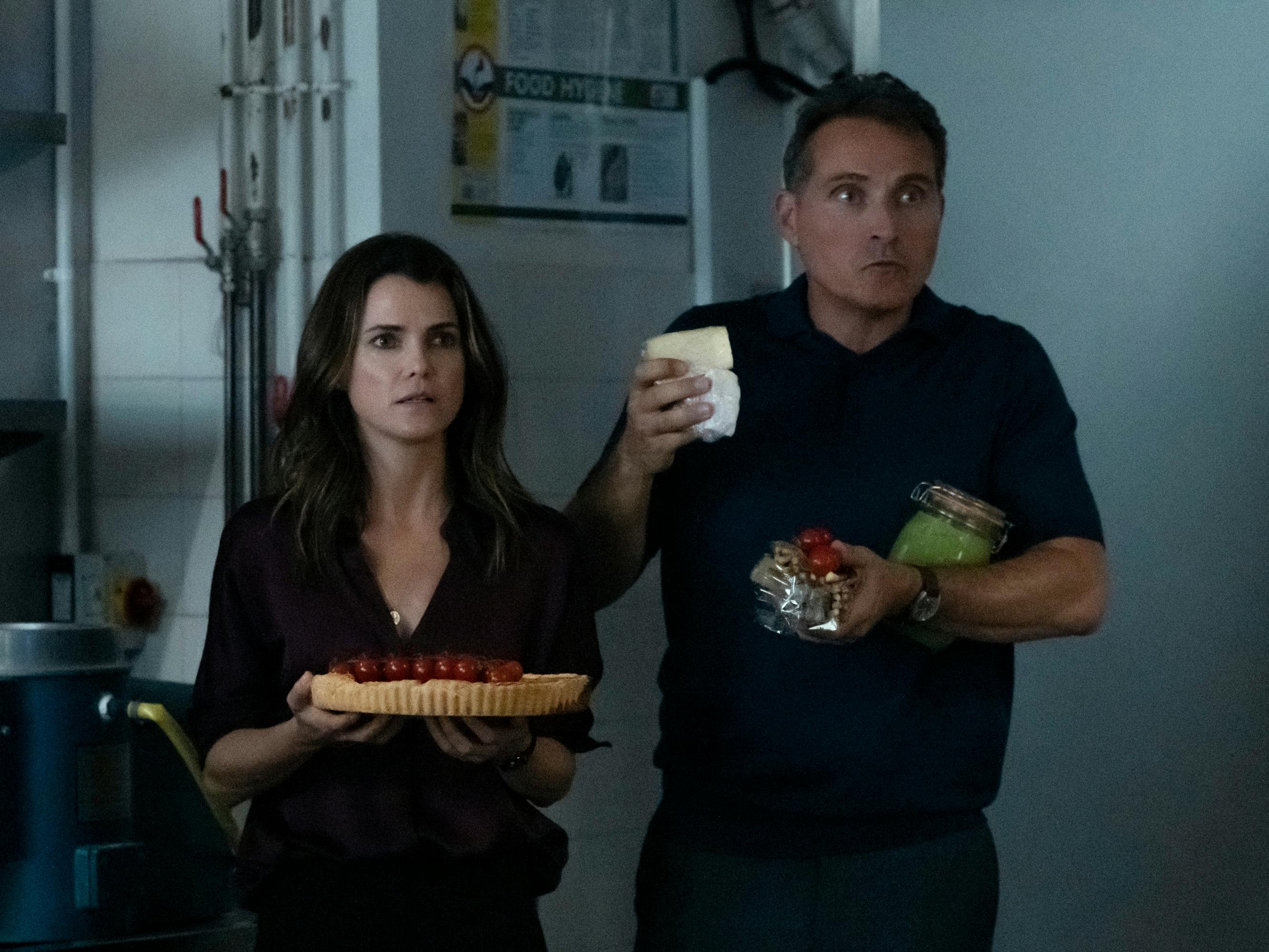
Kate Wyler (Keri Russell) and Hal Wyler (Rufus Sewell)
In many ways, Cahn has been gathering the intelligence needed to create The Diplomat since she began writing TV scripts in the 2000s. On The West Wing, for which she won a Writers Guild of America Award and Emmy nomination, Cahn honed her skills and drew audiences into American politics. On Homeland, she explored the international theater of state affairs. For her episode of Fosse/Verdon — which also earned her a coveted Writers Guild of America trophy — she scripted another complex married couple who drove each other crazy.
But it was during the final season of Homeland that the idea for The Diplomat was planted. “We had an incredible parade of experts who came in to talk to us when we were researching the season. And this ambassador came in one day. Her name was Beth Jones, and she looked a little bit like a librarian,” recalls Cahn. “She started talking about what she did during her career and suddenly these were action hero stories — like bombs dropping and she’s trying to [talk to] some warlord somewhere. It was high-stakes, dangerous, exciting, interesting, meaningful work. I just felt like those stories hadn’t been told.”
They certainly hadn’t been told with the tone Cahn had in mind: “I felt like there were a lot of pieces of those stories that could play out in a different, slightly more forgiving environment that came with a little bit of eye candy and the fantasy element of: What is it like to be a person who then moves into a castle?”
Because of the unique environment Cahn created, which somehow manages to straddle the tones of deathly serious and utterly absurd, The Diplomat feels both watchable and true to life. “I am always aware that there’s someone who is at a funeral who realizes they have gum on the bottom of their shoe,” she says of the kind of detail that draws her in, “and you’re seeing them trying to calculate when they can check the bottom of their shoe.”
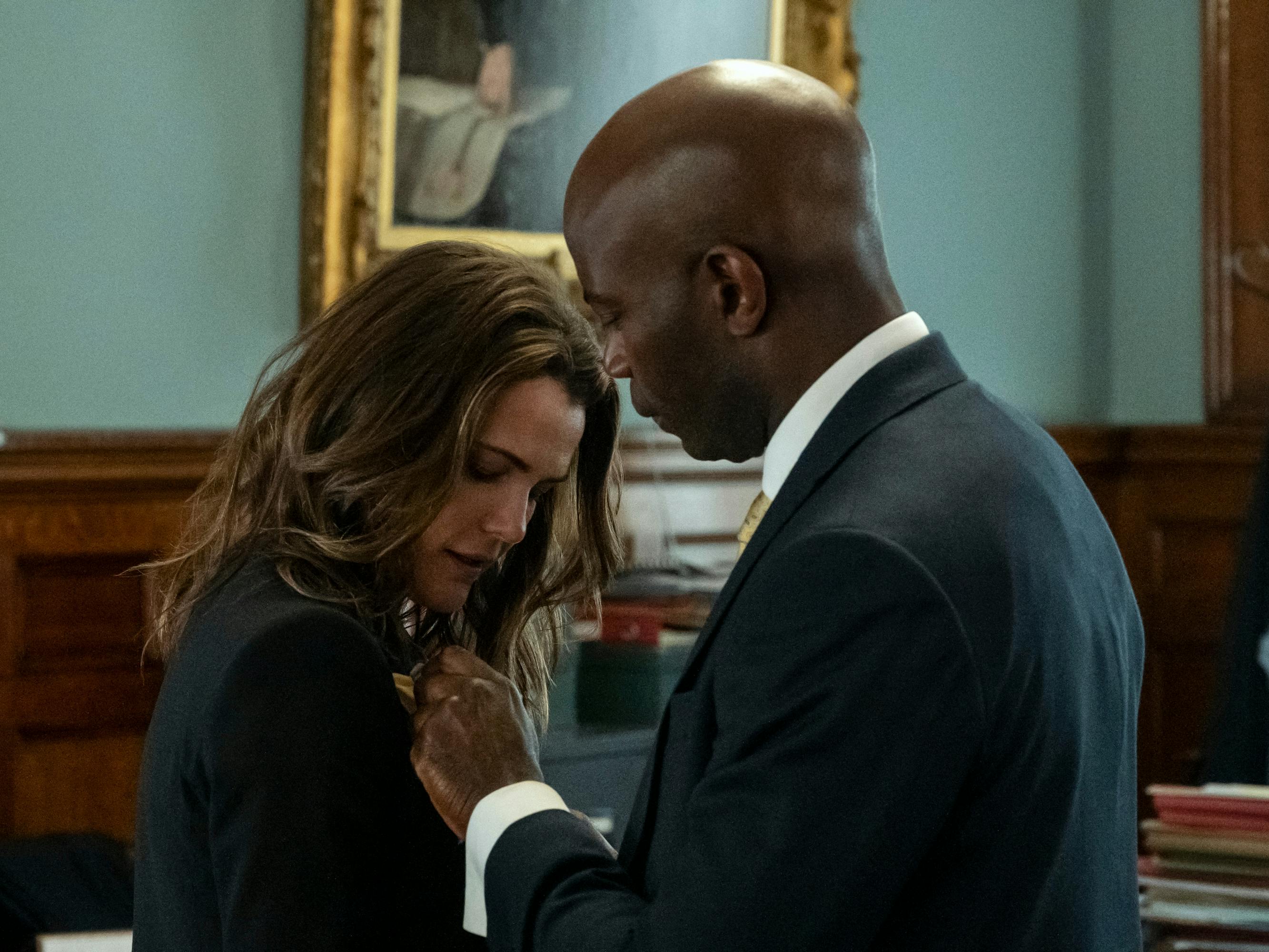
Kate Wyler (Keri Russell) and Austin Dennison (David Gyasi)
A scene from Cahn’s scripts can begin with exploring the merits of a London croissant (“I’m kind of into the British version; they’re bready.”) and end with a downright steamy conversation about delivering a speech at London’s Chatham House. An uncomfortable confrontation about a secret meeting can be punctuated with “Once you’ve established yourself as a liar, liar pants on fire, you undermine the game-changing intelligence.” The dynamics between world powers can be on thin ice with a takedown like, “The president of the United States cannot stand next to a prime minister who has just hocked up an Islamaphobic war whoop.” That is, when they’re not being evaluated based on who looks more like a “troll on a couch” in photos. As Gyasi, who delivered the couch troll line, recalls, “I remember the first time I met [Cahn]. I had this script and had read her writing, and it was the sort of writing you come across and think, I dare not change a punctuation mark because there’s something quite special happening here.”
And nothing leans more into Cahn’s sensibility than the Kate-and-Hal dynamic, which marries love, hate, respect, aversion, distrust, and dependence. “I like to create a situation where we think we know what it is and then do the opposite,” she says of her main duo. The Wylers are shades of the Clintons and shades of Cary Grant and Rosalind Russell, and they are as addicted to each other as they are addictive to watch.
“[The writing] takes into account how screwed up people are and how complex and contradictory [it is] that you can hate someone and love them and be attracted to them one day, and repulsed the next,” Sewell explains. “The consistency of tone and character and voice in this show is something I’ve never experienced before. It’s a very comforting feeling to go, Okay, I can just relax and trust.”
Looking ahead to Season 2, Cahn won’t spill any secrets. “I think that [Russell and I] are both glad to be telling a story in a world that’s now been established enough to give the characters a little bit more free rein to run around it,” Cahn says. “So that’s always fun when you can kind of go to the next level and know that your audience has a base of understanding about what the world is and who the people are and what to expect from them.” Has she tipped off Russell to any of her plans? “She doesn’t want to know a lot of what’s coming,” Cahn admits. Russell, who earned her fourth Emmy nomination for The Diplomat, is ready to follow her into a second season blindly, perhaps because she knows how to recognize a strong diplomatic partner. “[Debora] did such a great job last year,” she says. “I wouldn’t want to mess with a single thing.” Whatever the future holds for the U.K. and the U.S. in the world of The Diplomat, this is one alliance we can root for.
All interviews included in this piece were completed prior to May 2, 2023.
